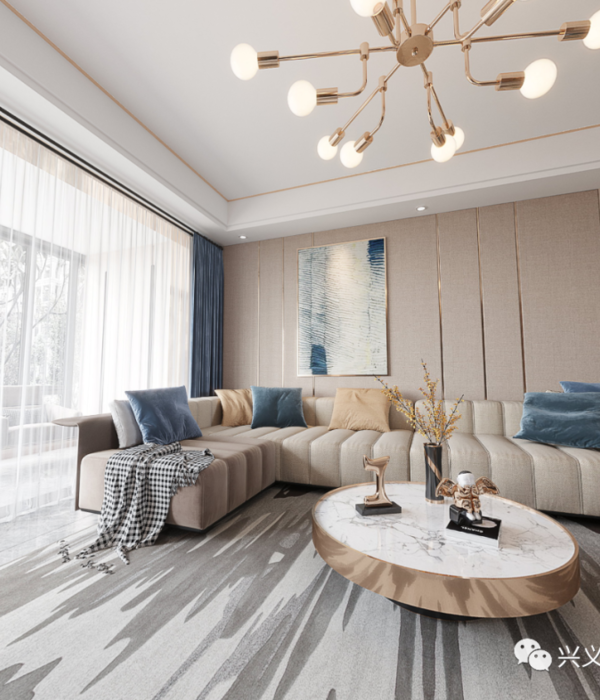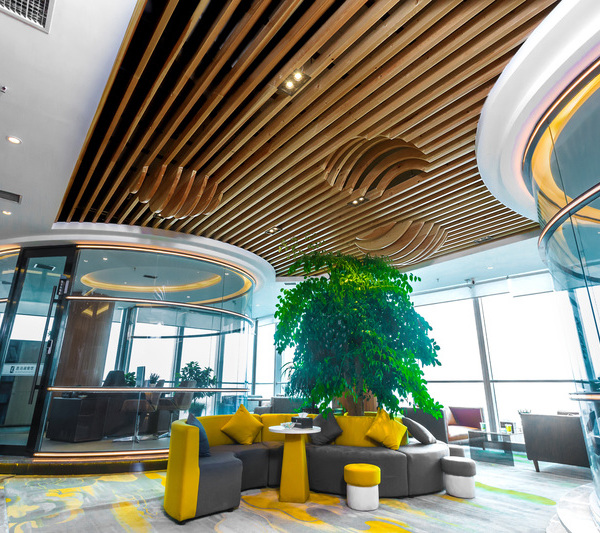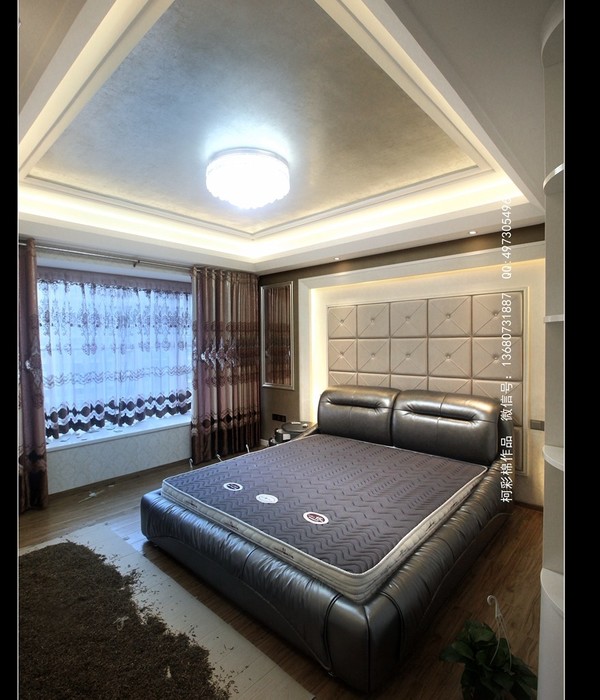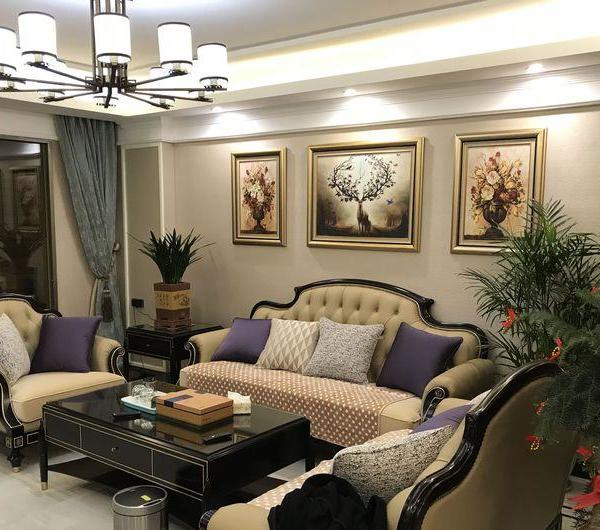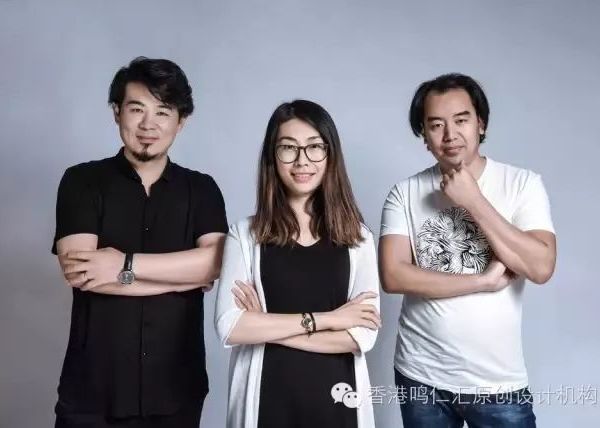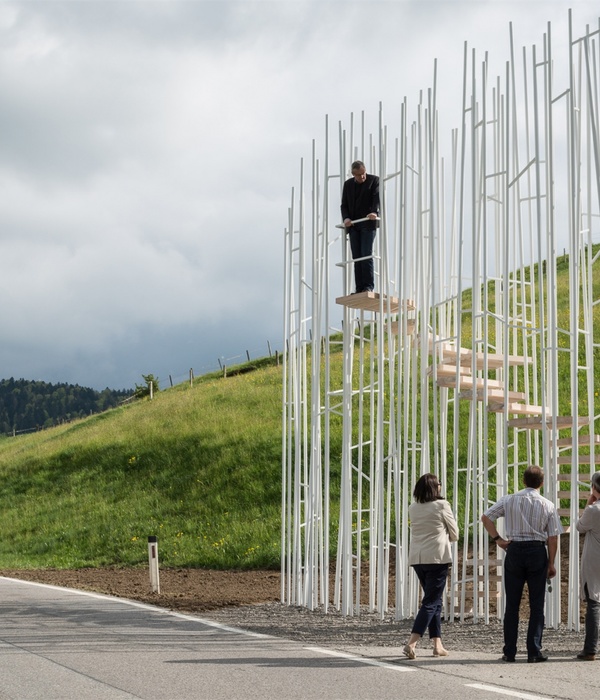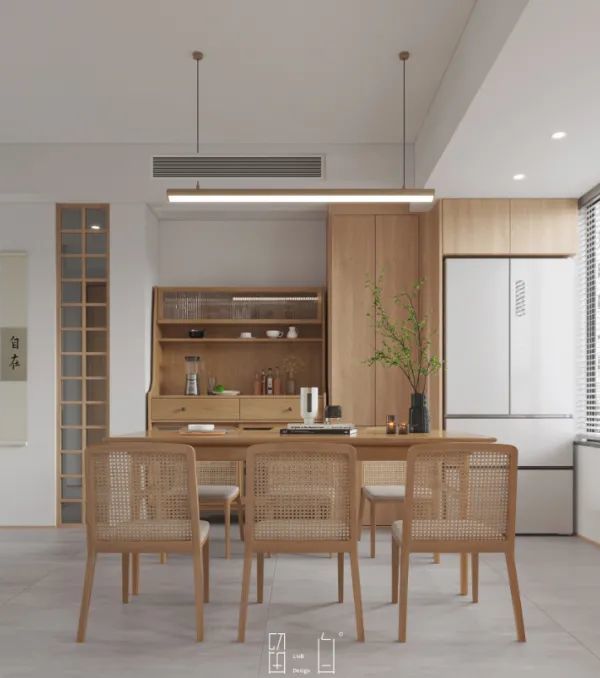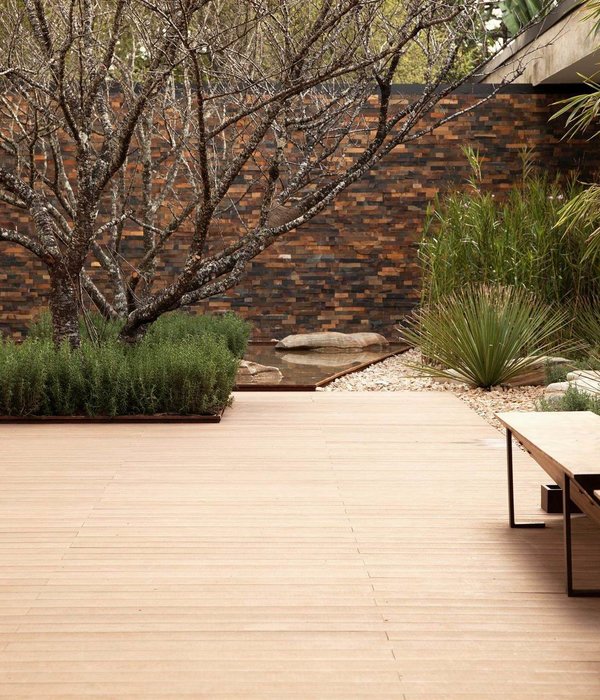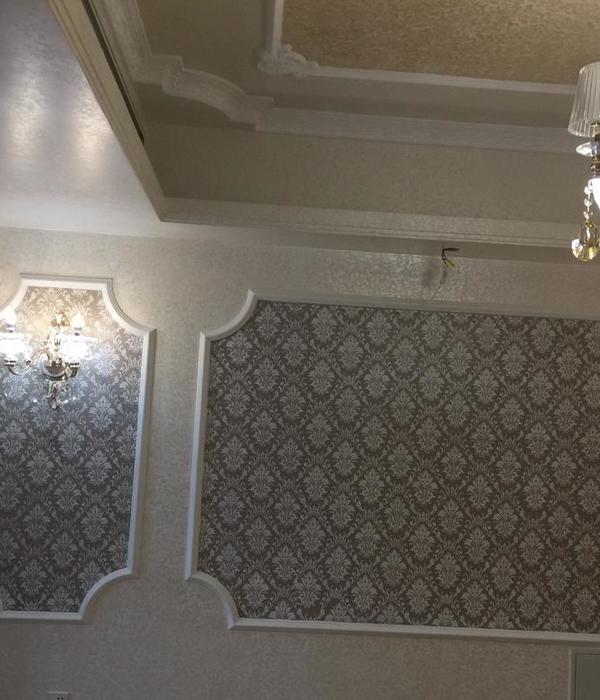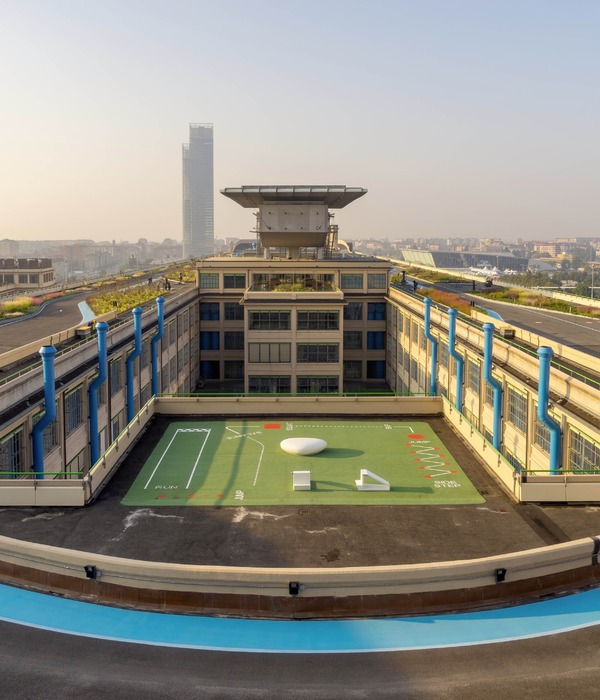- 项目名称:张家口工业文化主题公园
- 设计方:北京意景源创景观规划设计有限公司
- 联系邮箱:34802291@qq.com
- 主创及设计团队:张霄斌,方宝,徐亨华,何黎楠,刘烨,任文静,贺天,王松,赵转转,孙乾越
- 项目地址:张家口市桥东区
- 建筑面积:113000㎡
京张铁路,由詹天佑设计并主持修建,1909年建成,是中国首条自行独立设计和营运的铁路。它是中国铁路史的起点,而同年投入使用的张家口北站,便是这段历史的重要标志。
Jing-Zhang Railway, designed by Tianyou Zhan, was completed in 1909. It was the first independently designed and operated railway in China and was considered as the starting point of Chinese railway history. Zhangjiakou north railway station, which was put into use at the same year, was an important symbol of the period of history.
▼公园概览,overview © FLA
2019年,随着作为2022冬奥会重要交通保障的京张高铁开通,张家口南站成为这座城市新的枢纽,同时,服务逾百年的北站功成身退。事实上,北站与南站之间的铁路在几年前就已渐次停用,加上沿线的煤机厂、探机场面临清退拆迁,这一片曾经兴旺繁盛、热火朝天的工业重地早已丧失功能与地位,沦为了杂乱荒芜的废墟。尴尬的是,这一狭长区域穿越城市中心而过,犹如城市脸上一条无法忽视的疤痕,加上周边是大面积住宅区,考虑到原城市肌理中公共休闲空间较少,政府决定将这片区域重新设计为公共景观空间,用于提升市民的居住环境。综合背景与诉求,我们将工作目标定为——建造一所具有观赏价值、人文意趣、同时满足市民休闲娱乐需求的主题性公共空间。
In the year of 2019, a new high speed railway station, Zhangjiakou south station was build and operated as an important traffic support for the 2022 Winter Olympic Games. At the same time, Zhangjiakou north railway station which served for over 100 years, was no longer used and became history. As a matter of fact, the railway between the north station and the south station was out of service a few years ago. In addition, the coal machinery factories and the airport along this part of railway would be demolished. This part of land, once a prosperous and prosperous industrial area has lost its urban function and localization, and became a chaotic and desolate ruins. It is embarrassing that this long and narrow area passes through the center of the city was like a scar on the face of the city which can not be ignored. Considered that there was a lack of public leisure open space in the central area of the city surrounded by a large area of residential areas, the government was determined to regenerate this area to be a public landscape space in order to improve the living environment of citizens. Based on the comprehensive background and demands, we set our goal as to build a themed public open space with aesthetic value, humanistic interest and meeting the leisure and entertainment needs of the public.
▼场地原状,the site before construction © FLA
现在一说到观赏性与人文性,大家很容易联想的就是中国园林、唐诗宋词,五千年悠久历史……这是时下的流行趋势,一套中国风模板,能无缝套用在所有的中国城市里,采用这样的设计思路不费脑也不出错。只不过,流行大多浮于表面,千篇一律的设计模板更是对场所特质的漠视。当我们认真审视张家口这一段废旧空地的时候,我们看到了经年日久的铁道枕木,锈迹斑斑的货车车厢,早已停用但气势犹存的大型工业机器,曾经喧嚣如今空寂的厂房……这些物件与场所仿佛一群退休老人,初见面是沉默的,但如果你坐下来和他们聊聊天,就会听到一段又一段精彩纷呈的鲜活历史。
▼张家口工业文化主题公园索引图,map of the park © FLA
‘Aesthetic value’ and ‘humanistic interest’ are constantly associated with Chinese gardens, the poem of Tang dynasty and the verse of Song dynasty with a long history of over 5000 years. Traditional Chinese style landscape feature is popular at present and becomes to be a conventional design method, which can be regularly applied to most of projects in cities of China. Such way of design is stable and efficient, however,the temporary fashion is superficial and the abuse application on same design template ignores the original characteristics of the place. Carefully examined the site-a part of abandoned open space in Zhangjiakou, we saw a scene of old wooden railway sleepers, rusty railway carriages,large-scale industrial machines that have been out of use, and empty factories that once busy and noisy…These objects and places were like a group of retired old people. Silent when first met, however, when you sat down and chat with them, you would hear a wonderful and vivid story.
▼公园顶视,top view © FLA
勘察过程中,我们透过废墟感受到了这种活力与温度。事实上,这段铁路的历史,包含着一代张家口人的青春回忆,也支撑着张家口工业发展的重要阶段。土地有着自己的语言,如果掩盖这种声音,简单粗暴地将旧地粉饰一新,最终的结果是丧失其独特的表达。综合考虑后,我们将设计思路确定为建造一所纪念张家口工业历史的文化主题公园。在设计上注重勾陈与焕新——勾陈历史,焕新价值,营造有故事、有温度,独属于这一地带的公共空间。
During the site survey, we felt the vitality and energy through the ruins. In fact, the history of this part of railway contains the youth memories of one generation of Zhangjiakou people, and also refers to the important stage of industrial development in Zhangjiakou. This land has its own language. If we ignore this voice by simply and rudely ornament this old land, the landscape will lost its unique characteristics. After comprehensive consideration, we decided to build a cultural theme park to commemorate the industrial history of Zhangjiakou. The adapt the concept of the design as ‘Recall and Innovation’. By recalling the history innovating the new value of the city, we aimed to create an unique warm and interesting public open space.
▼公园北入口,the north entrance © FLA
勾陈,就是从废铜烂铁中打捞宝藏。焕新,则是为老物件赋予新价值,易时易地,重现光彩,再次成为提振张家口市民生活环境的亮点。在这次设计中,我们基本保留了完整的铁道。依据场地内现存两条主要的铁路走向,形成公园的人字形布局,东西向为人文轴线,展现张家口工业历史进程;南北向为运动轴线,结合冬奥会主题,以体育运动休闲公园作为主要功能形态。两个轴线的交汇处是火车头文化广场。
The concept ‘Recall’ is to find a precious significance from existing scrap metal. ‘Innovation’ on the other hand, is to explore meaning and value from old objects. As time and place changed, these objects would be enlightened and once again become a highlight to boost the living environment of Zhangjiakou citizens. In this design, we retained the railway tracks. According to the existing two directions of main railway in the site, a ‘herringbone’ master plan of the park is formed. The east-west direction was designed to be the humanistic axis, showing the industrial history of Zhangjiakou, while the north-south direction, as the sports axis, combined with the theme of the Winter Olympic Games, and took the sports leisure park as the main function . The intersection of the two axes was designed as the locomotive culture square.
▼位于轴线交汇处的火车头文化广场 the locomotive culture square as the intersection of the two axes © FLA
作为景观核心亮点的火车头文化广场,其原场地为南口货场,我们的设计围绕着原场地内的铁轨和一座46米高的废弃水塔来进行。广场以铁轨为中轴,自北向南布置奥运树、火车头喷泉广场、龙门吊主题区、小蛮腰文化区四个部分,两侧为银杏+白蜡的林下空间。我们将一台产于1983年的上游型蒸汽机车放置于旱喷泉广场中央,两侧则是用旧起重机机械臂改造的灯柱,两者呼应,形成了工业感十足的特色场域,旱喷泉则增加了体验者的参与感,使氛围轻松有活力。奥运树,舞动的钢铁,用三维软件尝试了钢铁雕塑装置的设计。
The locomotive culture square, the original site of which was Nankou freight yard,was designed as the core spot of this project.Our design focused on the railway tracks and a 46 meter high abandoned water tower in the site.Taking the railway track as the central landscape axis, the square was divided into four parts from north to south: the Olympic tree, the locomotive fountain square, the gantry crane and the slim waist. Ginkgo and ash trees was designed along both sides of the axis to create shady spaces. A steam locomotive made in 1983 was arranged in the center of the fountain square. The discarded crane manipulators were transformed to be landscape lamp posts along both sides of the square. This two landscape elements echoed each other, creating a place full of industrial characteristics. A dry fountain were introduced in this area, which increased the human participation, making the atmosphere light and lively. For the design of the Olympic tree, in order to achieve the concept of‘dancing steel’, 3D software was used to promote the design of steel sculpture device.
▼龙门吊主题区,the gantry crane © FLA
龙门吊主题区设计进一步强化了工业感。我们将原先煤机厂与探机厂的龙门吊天车置于场地之中,放置了一系列大型生产设备,布置上一定程度重现了当年生产车间的场景。体验者倘佯其间,像抚摸艺术品一样抚摸老旧机械,正如穿越时空,历史触手可及。另外,我们还用集装箱、给水水管、枕木、古城砖等构建了一处咖啡休闲区,将粗重的工业感与现代时尚揉和在一起。枕木的乌黑,龙门吊鲜明的橙红,粗壮有利的机械设备,这便是重工业时代粗犷文明的表达。在这片区域的最后,我们将设计高潮留给了46米高的废弃水塔,用钢构进行包裹,同时在钢构上配置分时控制的LED照明系统。白天,它是城市有趣的大型装置,夜间则变身大型灯光秀的载体,在整个区域内成为极具张力的记忆点和标志物。
The design on gantry crane increased the sense of industry further.The gantry crane of the former coal machinery factory and the exploration machinery factory was placed in this site along with large-scale industrial facilities which reemerged the scene of the workshop of that certain period. People would feel a sense of travelling through time and space by walking around and touching the old machinery. In addition, containers, water supply pipes, railway sleepers,old bricks etc.were used to build a leisure area,combining the heavy industrial feature with modern fashion characteristics. The black color of railway sleepers, the bright orange red of gantry cranes and the strong feature of mechanical facilities were the expression of rough civilization in the heavy industry era. At the end of this area, we set the water tower as the highlight point of the project. This 46 meter high obsolete water tower were decorated with stainless steel and equipped with time-sharing LED lighting system among the stainless steel structure.During the day, it is an interesting large-scale device in the city, while at night it becomes the carrier of large-scale light show, and plays a role of a memory point and symbol with great tension in the whole area.
▼广场夜景,night view © FLA
▼夜间点亮的奥运树,the lightening Olympic tree © FLA
工业历史,离不开对京张铁路的纪念。公园的东西轴线设计为以时间为线索的景观叙事。自西向东分别为詹天佑文化区、蒸汽朋克乐园、内燃动力剧场、电力时代广场,串连出张家口这一城市的工业文明脉络。作为起点的詹天佑文化区,其场地肌理取材于铁轨变道,以钢轨制作的主入口logo雄浑大气,徐徐向东,阳光草坪两侧列植八块京张铁路的站牌,结合中心位置的詹天佑铜像,沉静地讲述着这座城市那段辉煌的故事。
Industrial history is inseparable from the commemoration of Jing-Zhang Railway. The east-west axis of the park was designed as a landscape narrative with time as the clue. From west to East, we designed Tianyou Zhan Cultural District, Steampunk paradise, internal combustion power Outdoor theater and electric power times square, connecting the industrial civilization of Zhangjiakou. Tianyou Zhan cultural district is the starting point of the park.The idea of design was based on the crossing railway tracks. Original materials such as steels from railway tracks were used to build the park Logo. We tried to build an strong and magnificent park entrance by placing eight poles of Jing-Zhang Railway station signs on both sides of the central lawn along the east direction. The signs combined with the bronze statue of Tianyou Zhan in the middle, interpreting the glorious story of the city.
▼公园西入口,詹天佑文化区,the west entrance, Tianyou Zhan Cultural District © FLA
▼工业时代广场,the Industrial Times Square © FLA
▼京张铁路车站纪念牌,poles of Jing-Zhang Railway station signs © FLA
于次衔接的蒸汽朋克儿童乐园则活泼欢快,充满幻想气息。在这里我们结合场地高差,在飞马、大蜗牛、蚂蚁等有塞北记忆的乡土元素中大胆融入了蒸汽朋克风格,同时改造工厂零件,将其变成滑滑梯等儿童娱乐设施,别具一格、童趣盎然、参与感极强,使孩子在玩耍中体会工业氛围。
Secondly, the Steampunk children’s Park, was lively and full of fantasy. The deign integrated with the height diversification of the original landform, and combined with Chinese north local elements such as flying horse, big snail, ant etc. On the other hand, we recreated the industrial components into children’s entertainment facilities such as children slide, which were unique, full of children’s interest and strong sense of participation. Children could experience the industrial atmosphere by playing in the space.
▼蒸汽朋克乐园,飞马滑梯,the Steampunk children’s Park © FLA
内燃动力剧场是一处木平台为主的室外空间,利用原有铁路在场地内行成的不同高差,用钢板和工业元素构成观演空间,这也是一个怀旧的露天电影院。电力时代广场,是将原先场地遗留的电力机车架线杆与光电地板结合,形成的互动娱乐体验场地,适合体验者参与,同时独特的外观也适合留影拍照,增加景观记忆点。
The internal combustion power theater was designed as an outdoor space with wooden deck. We combined the elevation differences which was shaped in history, with stainless steel and industrial elements to built a perfect film watching space. It was also a nostalgic open-air cinema. The electric locomotive stringing pole and photoelectric floor left over from the original site were used to form a interactive entertainment experience place.This place was suitable for the participants. At the same time, its unique appearance was suitable for taking photos and increasing the landscape memory as well.
▼铁路旁的内燃动力剧场,the internal combustion power theater by the railway © FLA
▼一个怀旧的露天电影院,a nostalgic open-air cinema © FLA
与历史线浓墨重彩的风格相平衡,公园南北向的体育运动主题公园在设计声更加轻盈活泼。现场原有的两条城市铁路得以保留,辅之以夜景照明后,为整个南北向公园塑造了一快一慢两条步道,沿铁路还铺设有一条彩色沥青跑道,整合整个南北向公园。布道与跑道两侧放置有原探机厂,煤机厂的工业设备,经过防锈处理,它们的存在更像一条艺术长廊两侧的展品,与绿荫,花卉互为凸现由相互融合,当人们锻炼,休闲,漫步时,移步换景,便完成了与这个城市文化的探望与对话。
Beside the historical line, the design feature of the North-South sports theme park was lighter and more lively. The original two urban railways on the site were well preserved, supplemented by landscape lighting system, which creates two footpaths, one fast and one slow, for the north-south direction of the park .A colored asphalt runway was also paved along the railway to integrate north-south.Industrial equipment of the original exploration machine factory and the coal machine factory were placed on both sides of the footpath and runway. These equipment, after rust proof treatment, highlighted with green shade and flowers, became exhibitions, creating an art corridor.When people exercise, relax and walk, they change their steps and complete the visit and dialogue with the unique culture of the city.
▼南北段奥运体育公园,the North-South sports theme park © FLA
▼休憩凉亭,pavilions for rest © FLA
▼公园内的遇见书店,the bookstore in the park © FLA
2018年,京张铁路入选第一批中国工业遗产保护名录。中国城市的历史,不只有雕梁画栋的古代史,更有与人们息息相关的现代史。在这次工作中,我们尝试将真正的历史与现代并置,尊重每一段历史,每一个个体的价值,并探索了景观文化的多样性可能。结合新与旧,连接过去、现在和未来,使得一堆支离破碎的历史废料获得价值,再次融入城市生机中,从荒凉变得温暖,疮疤变成亮点。
In 2018, Beijing Jing-Zhang Railway was included in the first batch of China’s industrial heritage protection list. The history of Chinese cities is not only relevant on the ancient history of carved beams and painted buildings, but also the contemporary history closely related to people. In this project, we focused on the combination with history and modern fashion. We respect the value of each section of history and individual, and explore the possibility of diversity of landscape culture. Combining the new with the old, connecting the past, the present and the future,the design put a pile of fragmented historical waste with great value, reintegrated the landscape into the vitality of the city, and changed the place from desolation to warmth, scars to highlights.
▼游憩步道,the recreational trails © FLA
▼工业元素的点缀,industrial elements as the landscape © FLA
▼景观挑台,the landscape platform © FLA
▼结合铁路创造景观记忆点,increasing the landscape memory © FLA
风景园林大师约翰·西蒙兹在《启迪》一书中曾写到:「接触每一个人,每块材料,每个地方和事物,去发现和挖掘它们的最佳特质。」在本次张家口工业主题公园项目的设计工作中,我们再一次深刻感受到这样做的重要与正确。历史不仅是久远的也是鲜活的,文化艺术不仅收藏于博物馆,也可能沉埋于废墟中。试图使破败的可被观赏,陈旧的可被阅读,把历史归还生活,让生活凝练出艺术。这是我们在这次整体设计中最有价值和值得记忆的部分。
▼夜间的市民活动,spaces for night activities © FLA
{{item.text_origin}}

